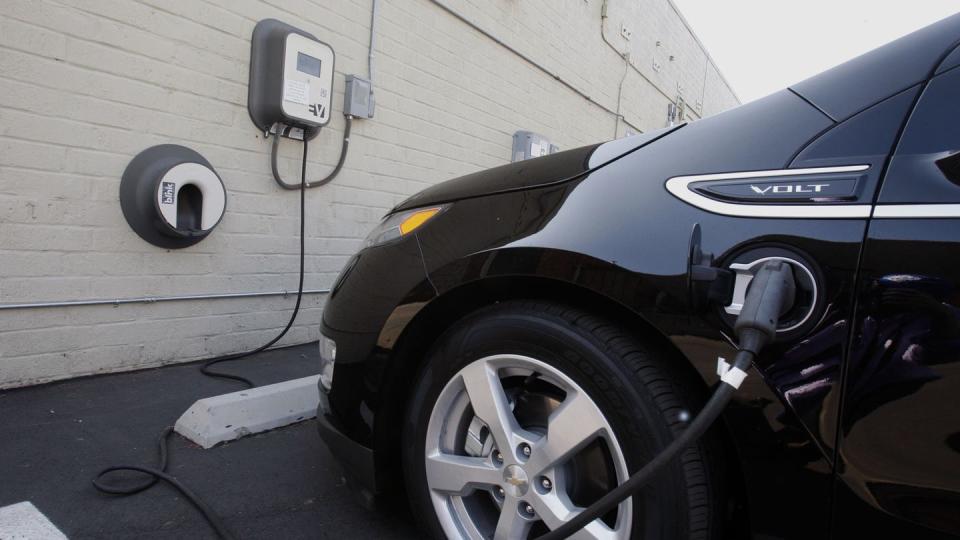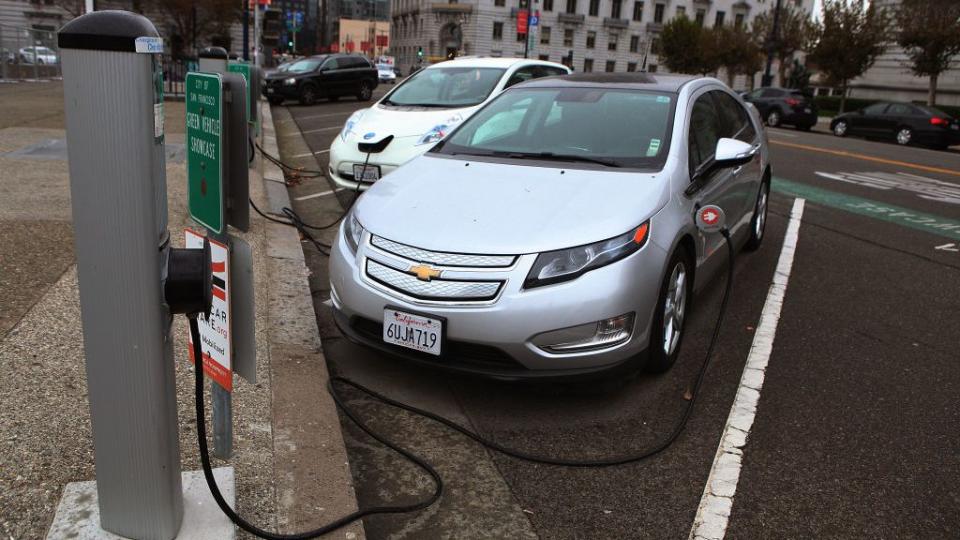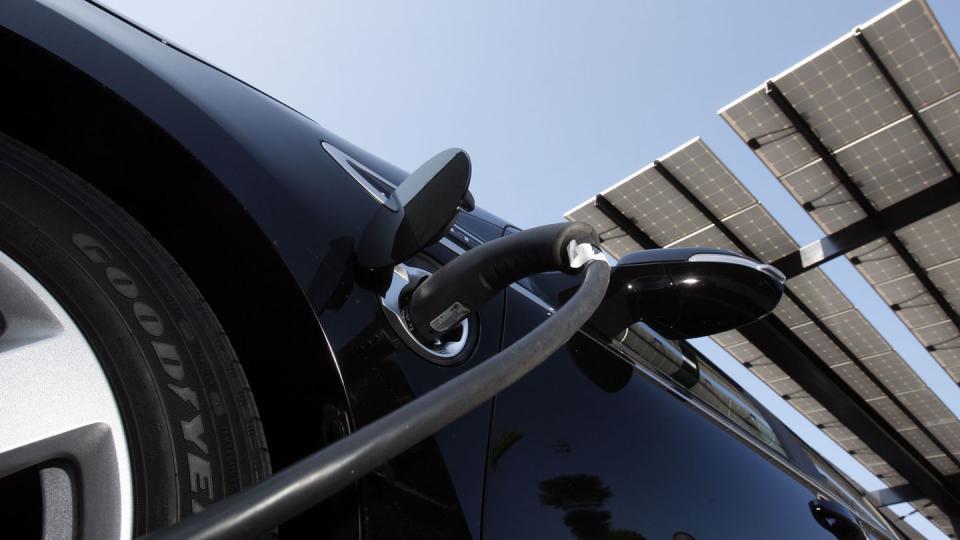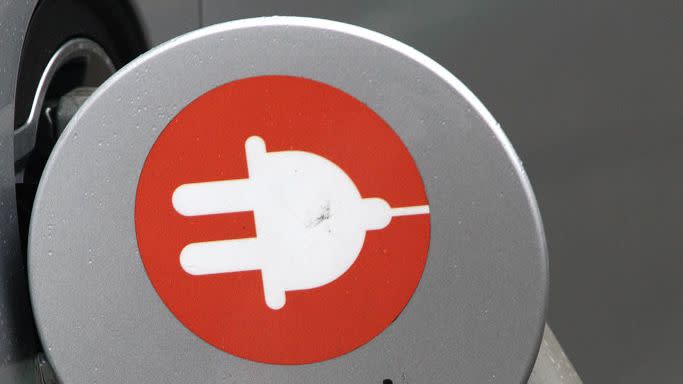Level 2 EV Chargers Explained

Level 2 chargers are generally what you will find in public charging stations. They are the most common, and provide speeds that are several times faster than Level 1 chargers. Using a Level 2 charger, a vehicle should be able to recover dozens of miles of range per hour, depending on the battery size and vehicle type. Level 2 chargers are also common as home EV chargers, because they require very little installation effort and can be run on a standard 240V household outlet.
Charging Stations
The vast majority of EV charging stations offer speeds of at least Level 2 or Level 3. This is because Level 1 charging does not provide practical charging speeds for most people.
Adding 3-5 miles of range per hour would mean an overnight stay at a charger for most people. Charging at Level 2 or Level 3 means an EV owner can stop at an EV charging station and be out in an hour or less having added usable range to their vehicles.

Charging Equipment
Despite the slow speeds, a Level 1 charger is the only way to charge at home without adding equipment. Level 1 home chargers plug right into a standard household outlet and do not require any chargers or special installations other than a standard wall outlet.
While not a practical solution for many people because of the speed, Level 1 charging can be a savior for owners that live in places where installing a standalone charger is impossible.
Level 1 may also be the only speed available if an emergency charging stop has to be made. If the EV is out of range and isn't able to reach a charger, there may only be a household outlet available to provide power.
Level 3 Charging
Level 3 charging is currently the fastest speed our charging infrastructure can support. Level 3 charging uses DC power (direct current), and is capable of adding up to 20 miles of range per minute.
Tesla Superchargers are Level 3, though most other chargers are just referred to as DC Fast Chargers. The hardware necessary to make Level 3 charging stations work safely is expensive and bulky, so they are not typically installed in a home charger situation.
It's also worth noting that, even with a powerful charger, the speed at which an EV can recover miles of range depends heavily on its internal charging speed. The most powerful EV charger won't do any good with a car that can't accept its charging speeds.
How Long Do EV Car Batteries Last?
Every electric car sold in the United States leaves the dealer's lot with a battery warranty that extends to at least eight years or 100,000 miles. Some go above and beyond those numbers, but you can rest easy for at least eight years if you purchase a new EV.
That's not to say that your battery will last that long, however, so it's not a guarantee that you'll have eight years of trouble-free operation. Some manufacturers' warranties carry stipulations on battery condition or operation before coverage is provided, so it's important to understand your car's warranty.
None of that tells us battery lifespan, however. In most cases, battery degradation happens slowly, with as little as a few percentage points of capacity every several years. Cars that operate primarily in extremely hot or cold conditions may see that decline happen much more quickly, but few people live at the far ends of the temperature spectrum without at least short periods of intermediate temperatures for relief.
In most cases, electric car battery life expectancy should hit at least 100,000 miles before showing noticeable signs of degradation, and should carry on to 200,000 or more if properly maintained.
The bottom line is that lithium-ion batteries are becoming more advanced and durable as time goes on, so battery longevity should not be a concern for the average EV user.

What are the pros of owning an electric vehicle?
REDUCED MAINTENANCE
It's true that gas vehicles are usually less expensive and easier to refuel, but there are several benefits to owning an EV that have nothing to do with costs. One of the biggest pros of owning an electric car is the reduced need for regular maintenance.
There are no oil changes, no mechanical components to break underhood, no exhaust system, and the life of other components such as brakes can be extended. Many people report that driving an electric car is more relaxing than a gas vehicle, because of the lack of engine noise.
MORE PERFORMANCE
Many electric models offer significant performance benefits over gas vehicles as well. This applies not only to intended high-performance, but even to everyday commuter vehicles. The immediate torque and acceleration can make electric cars exhilarating to drive, and make them quicker than most people expect, depending on driving habits.
Plug-in hybrid vehicles (PHEV) offer some of these benefits over a traditional gasoline vehicle, but they also must rely on fuel to provide power when the electricity runs out.
TAX INCENTIVES
There may also be tax credits available, depending on the electric car you opt for. The United States government offers a one-time tax credit of up to $7500 to buyers of eligible electric cars—and various states offer tax credits on select models, too—which lowers the effective cost of the purchase.
All of that, and we haven't even mentioned the complete reduction of CO2 and greenhouse gas emissions in everyday driving and the fact that gas prices fluctuate wildly. Fuel costs are a big motivator for many buyers.

What are the cons of electric cars?
ACCESS TO CHARGING
There are a few downsides (battery basics) to owning an electric car that might not be immediately apparent when you are standing on the dealer's lot trying to make a car purchase.
Depending on your location, you may or may not have ready access to charging stations. This is especially true for people who live in apartment buildings or those who rent, as it can be impossible to install a home charging system.
TIME TO CHARGE
You may also find that electric cars take too long to charge, even if there is a charging station nearby.
Unlike filling up a gas tank, which can take a few minutes, most electric vehicles take much longer to recover a sizable portion of their range. This can make road trips impractical for many, as the requirement to stop and charge for half an hour or more can turn a simple trip into a long, painful one.
COST TO BUY
Last, there is the issue of purchase cost. Electric cars, no matter the type, size, or technology, are usually more expensive than comparable gas vehicles.

 Yahoo Autos
Yahoo Autos 